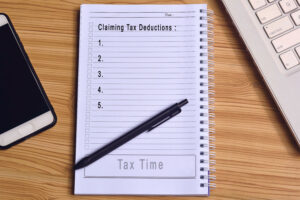Someone died and left you in charge of their mess. Or maybe you’re inheriting something and just realized New Jersey might want a piece of it. Either way, you’re probably panicking a little because taxes and death are two things nobody wants to deal with at the same time.
I get it. I was executor for my uncle’s estate three years ago and spent the first two weeks convinced I was going to accidentally commit tax fraud.
The Part That’s Actually Good News
New Jersey killed off its estate tax back in 2018. Like, completely eliminated it.
Before that? Brutal. Any estate over $675,000 got hit, and in this state that’s literally just a regular house in most towns plus whatever someone managed to save for retirement. My aunt died in 2016 and we had to write a check to the state for $40,000 before we could settle anything. It was insane.

NJ Estate Tax Guide For 2025
But if your person died in 2018 or later, that particular nightmare doesn’t exist anymore. You can scratch “NJ estate tax” off your worry list.
Now let me tell you what you still need to worry about.
Federal Estate Tax (Probably Not Your Problem)
There’s a federal estate tax but the exemption is something like $13.6 million right now. Unless your relative was hiding some serious wealth, this isn’t going to come up.
If somehow you ARE dealing with an estate that big, stop reading this and go find a CPA who specializes in wealthy people problems. The tax rate goes up to 40% and there’s fancy trust stuff and strategies that need to happen fast. That’s not DIY territory.
For the rest of us normal humans, federal estate tax is not a thing we need to think about.
Inheritance Tax Is Still Here and It’s Annoying
This is the part that confuses everybody because inheritance tax SOUNDS like estate tax but it’s completely different.
Estate tax hits the whole estate before anyone gets paid. Inheritance tax is about who’s receiving the money and how they were related to the dead person. New Jersey still has this one, and depending on who you are, you might owe nothing or you might owe a chunk.
Here’s how they break it down, and I’m warning you now, it’s going to piss you off:
Immediate family pays zero. Spouse, kids, stepkids, grandkids, parents, grandparents—you’re all “Class A” and you don’t owe New Jersey a dime. Doesn’t matter if you inherit $100 or $10 million.
Siblings and in-laws pay 11-16%. You get a $25,000 exemption first, so if your sister leaves you $30,000, you only pay tax on $5,000 of it. Still annoying but could be worse.
Everyone else pays 15-16% with no exemption. Friends, nieces, nephews, cousins, your partner if you never got around to that domestic partnership paperwork—you’re all “Class D” and you’re getting taxed from dollar one.
Charities pay nothing. At least they did one thing right.
Let Me Give You a Real Example of Why This Sucks
My uncle left $75,000 to his son and $75,000 to me. We both helped take care of him the last two years of his life, same amount of hospital visits, same everything.
His son paid zero. I paid $11,250 in inheritance tax because I’m a nephew, not a son.
Same money, same family, different last name on the birth certificate. That’s all it came down to.
Or my coworker—her aunt raised her after her parents died. Like, she was more of a mom than an aunt. Left her the house when she passed. My coworker had to come up with about $35,000 in inheritance tax to keep a house she grew up in. Meanwhile if her aunt had formally adopted her, she would’ve paid nothing.
The law doesn’t care about who actually mattered to the person. It only cares about the legal relationship. Makes you want to scream sometimes.
If You Got Stuck Being Executor
First of all, my condolences. Being executor sounds nice when someone names you, like they’re honoring you or whatever. Then you realize it’s basically a part-time job you didn’t apply for and don’t get paid for.
Here’s the scary part nobody mentions upfront: if you give people their inheritance before paying the inheritance tax, and then there’s not enough money left to cover it, New Jersey will come after YOUR money. Not the estate’s money. Yours. Personally.
I almost made this exact mistake. Was about to cut checks to everyone because they kept asking when they’d get their money, and my accountant literally called me and said “Do NOT do that yet.” Apparently I hadn’t filed some form and hadn’t gotten the tax clearance and if I’d distributed everything, I would’ve been personally liable for about $8,000 in taxes.
You’ve got nine months from the date of death to file the inheritance tax return if anyone owes tax. Miss that deadline and you’re looking at penalties and interest piling up.
Most people hire a CPA at this point. I tried to do it myself at first to save money, made it about three weeks before I admitted I was in over my head.
Tax Waivers Are Their Own Special Hell
Even when nobody owes any inheritance tax at all—like everything’s going to kids and spouse—you still need to prove that to everyone.
The bank won’t close the accounts without a tax waiver. The mortgage company won’t let you sell the house. The investment firm won’t transfer the stocks. Everyone wants proof that New Jersey’s been dealt with.
Getting a tax waiver means filing paperwork with the state and then waiting. I waited seven weeks for ours. Some people wait three months. You call them, they say it’s being processed, you wait some more.
There’s no way around it. You just have to do it and be patient, which is hard when you’ve got beneficiaries texting you asking where their money is.
All The Other Tax Crap
You still have to file a final income tax return for the person who died. That’s due by April 15th following the year they died, just like any other tax return. If they were getting Social Security, pension, whatever—that all counts as income and needs to be reported.
If the estate itself makes money after they die (rental income, stock dividends, interest), the estate files its own tax returns. Yeah, the estate becomes its own taxpayer. Because this wasn’t complicated enough already.
Property taxes keep coming if there’s real estate. Nobody cares that the owner’s dead. The town still wants its $8,000 every quarter or whatever.
Oh, and if the person owned a business or had complicated investments or property in multiple states, you can probably add another six months to how long this is all going to take. Maybe a year.
Just Pay Someone Who Knows What They’re Doing
Look, I tried to save money by handling most of it myself. Still ended up paying a CPA $1,200 to review everything and file the final returns because I was terrified of screwing something up.
My friend’s dad decided to save that money and do it all himself. Filed the inheritance tax return two weeks late because he didn’t realize you could request an extension. Paid almost $3,000 in penalties. Would’ve been cheaper to just hire an accountant from the start.
These people know tricks you’ll never find on Google. They know which expenses can be deducted from the estate. They know how to handle weird situations like when someone owned property in Florida and New Jersey. They know when to file what form and in what order.
Is it expensive? Yeah, kind of. But not as expensive as fixing mistakes.
Bottom Line
New Jersey’s estate tax is dead, which is genuinely good news for once.
The inheritance tax is alive and well and comes for you based on how you were related to the person who died, not on whether you actually deserve the money or need it or anything that makes sense.
If you’re the executor, take this seriously. Don’t rush to hand out money. Don’t miss filing deadlines. Don’t be a hero—get professional help.
If you’re inheriting and you’re not immediate family, set aside money for taxes before you spend a dollar of it. I’ve seen people buy cars with their inheritance only to realize two months later they owed the state 15% they no longer had.
The whole process takes way longer than you think it will. Expect six months minimum, probably closer to a year for anything complicated.
And seriously, find a good CPA or accountant who deals with estates regularly. It’s not admitting defeat, it’s just being smart. This stuff is confusing on purpose, and you’ve got enough to deal with without adding “figure out New Jersey tax code” to your list.
Deal with the taxes, get it done right, and then you can close this chapter and actually grieve or celebrate or whatever you need to do.





